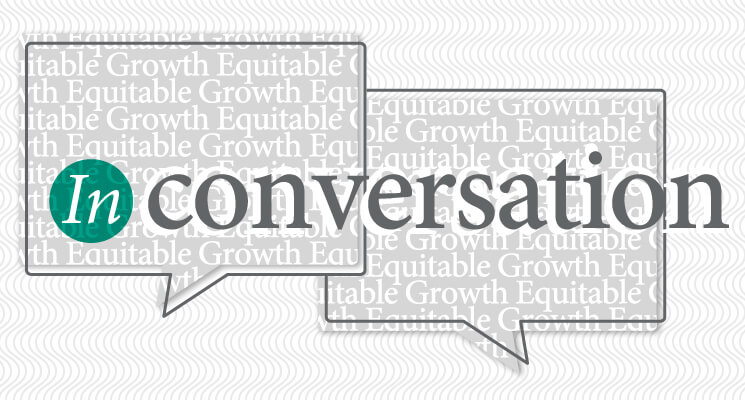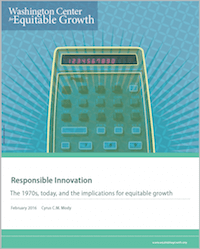Brad DeLong (2003): On Machiavelli’s “Letter to Vettori”: Or, The Value of the History of Economic Thought:
A surprisingly-large number of people have recently asked me why I am interested in the history of economic thought.
They make various points:
- First, we don’t learn physics from Galileo’s Discourse on Two New Sciences. There are other, better, more complete, more accurate ways of presenting the material. In any real body of knowledge, the more up-to-date has to be preferred to the less because we know more than they did.
- Second, there are the dangers of promoting dead and dry texts to the status of unquestionable authorities. Karl Marx saw misery in industrial England in the 1840s, jumped to the conclusion that market economies could never deliver persistent, sustained, significant improvements in real wages to the working class, jumped to the conclusion that markets had no place in any truly human mode of social organization, and–because his words became Holy Writ, the sacred gospel that was never to be questioned of a Millennarian World Religion–more than a billion people were doomed to even deeper poverty for more than a generation.
- Third, there is the danger that one will read texts one has placed high on a pedestal and discover in them a secret message, a crucial form of knowledge that is desperately important and that only you have the wit to decode as it exists in hidden form beneath the surface of the ‘apparent meaning’ of the text.
These are indeed powerful drawbacks, ever-present dangers in any enterprise that contains any substantial intellectual history component. One may well find oneself attached to outmoded and partial knowledge, abandoning one’s right mind to become the acolyte of some strange old book-based cult repugnant to reason, or transformed into a madman convinced that only one and one’s own sect has been able to master the hermetic mysteries of the vitally-important true-but-hidden meaning of the text.
But there is an upside. What is the upside? Let me approach it in a roundabout fashion. Let me start by quoting a famous letter, a letter from circa-1600 Florentine politician Niccolo Machiavelli to his friend and hoped-for patron Francesco Vettori, describing what Machiavelli’s life is like in the internal political exile to which he was consigned after the fall of Florentine Republican government that he had served.
The letter is best known for its description of how Machiavelli spent his evenings, found in the second paragraph below:
I am living on my farm…. I get up in the morning with the sun and go into a grove I am having cut down, where I remain two hours to look over the work of the past day and kill some time with the cutters…. Leaving the grove, I go to a spring, and thence to my aviary. I have a book in my pocket, either Dante or Petrarch, or one of the lesser poets, such as Tibullus, Ovid, and the like. I read of their tender passions and their loves, remember mine, enjoy myself a while in that sort of dreaming. Then I move along the road to the inn; I speak with those who pass, ask news of their villages, learn various things, and note the various tastes and different fancies of men. In the course of these things comes the hour for dinner, where with my family I eat such food as this poor farm of mine and my tiny property allow. Having eaten, I go back to the inn…. I sink into vulgarity for the whole day, playing at cricca and at trich-trach…. So, involved in these trifles, I keep my brain from growing mouldy, and satisfy the malice of this fate of mine, being glad to have her drive me along this road, to see if she will be ashamed of it.
On the coming of evening, I return to my house and enter my study; and at the door I take off the day’s clothing, covered with mud and dust, and put on garments regal and courtly; and reclothed appropriately, I enter the ancient courts of ancient men, where, received by them with affection, I feed on that food which only is mine and which I was born for, where I am not ashamed to speak with them and to ask them the reason for their actions; and they in their kindness answer me; and for four hours of time I do not feel boredom, I forget every trouble, I do not dread poverty, I am not frightened by death; entirely I give myself over to them.
And because Dante says it does not produce knowledge when we hear but do not remember, I have noted everything in their conversation which has profited me, and have composed a little work On Princedoms, where I go as deeply as I can into considerations on this subject, debating what a princedom is, of what kinds they are, how they are gained, how they are kept, why they are lost…
In short, on the coming of evening Niccolo Machiavelli enters his personal library. There he talks to his friends–his books, or rather those who wrote the books in his library, or rather those components of their minds that are instantiated in the hardware-and-software combinations of linen, ink, and symbols of Gutenberg Information Technology that is his personal library. They are ‘ancient men’ who receive him ‘with affection,’ and for four hours he ‘ask[s] them the reason for their actions; and they in their kindness answer me; and… I do not feel boredom, I forget every trouble, I do not dread poverty, I am not frightened by death…’
Remember that Machiavelli lives only two generations after Gutenberg. He is thus one of the very first people in the world to have had a personal library. Before printing, libraries were the exclusive possession of kings, sovereign princes, abbots, masters of the Roman Empire (like Caesar and Cicero). The idea that a mere mortal–a disgraced ex-Assistant for Confidential Affairs to the Republic of Florence–might have a personal library would have been absurd even half a century before Machiavelli. To him, therefore, his personal library is not something he takes for granted, but something new, something he has that his predecessors did not. And so he can see clearly what his personal library does for him.
What does his personal library do for him? It does this: it enlarges his circle of friends. Especially in disgraced semi-exile–when many he would talk to are afraid to be seen in his company, and where he is afraid to be seen in the company of almost all the rest–the ability to read and reread his personal copies of Publius Ovidius Naso, Petrarch, Dante Alighieri, Titus Livius, Plutarch, and the rest makes them his friends: almost the only people who will receive him with affection, and definitely the only people who will honestly answer his questions about politics and history. And it is important to have such friends, and to pay them proper respect. Hence Machiavelli will not go to them in his clothes-of-the-day–those in which he had managed his farm, haggled over the price of firewood, gambled, and on which he had spilled beer. He will, instead, enter his library only in ‘garments regal and courtly.’
To my mind, studying the history of economic thought has much the same effect. It is not that any of us are in Machiavelli’s situation–where a single wrong sentence to the wrong person and we would find ourselves under torture in the dungeons of Florence’s Palazzo Vecchio. But it is very nice to add some highly intelligent, extremely witty, and very thoughtful people living far away–for the past is indeed far away, and in its strangeness provides an important element of perspective–to our circle of friends.
Moreover, people’s rough edges are filed off in their books. Adam Smith found Jean-Jacques Rousseau impossible in person, but that chunk of Rousseau’s mind that is instantiated in the hardware-and-software combination of Gutenberg Information Technology is very pleasant company. Nobody outside his family (save Friedrich Engels) could ever stand Karl Marx for any length of time. But that part of Marx’s mind that is instantiated in his books doesn’t fly into irrational rages, doesn’t accuse one of being a police spy, doesn’t beg for money, doesn’t demand that one accept that he is very much smarter than one. Instead, Marx-in-the-book speaks passionately of his hopes and fears for the future–hope coming from the progressive destiny of humanity and the extraordinary progress of technology, and fear coming from our constant tendency to f* up our social engineering problems–and (save when he starts raving Hegelian gibberish, or when you see that whole chunks of his argument fall away because he has confused the physical capital-output ratio with the value capital-output raio) can be very good company indeed.
And then there are those whom one really wishes one had gotten to know in person. For who would not like to be good friends with (if one were quick and witty enough to avoid becoming one of his targets) John Maynard Keynes, or David Hume, or John Stuart Mill, or Adam Smith?”


